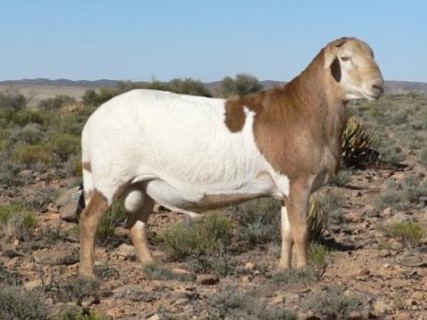The Meatmaster breed of sheep originated in South Africa in the early 1990s through a deliberate crossbreeding program. Farmers aimed to combine the advantages of indigenous fat-tailed hair breeds with those of well-muscled British and European breeds, creating a composite breed with superior meat qualities. Various fat-tailed breeds were crossed with well-muscled breeds to achieve this goal.
Meatmaster sheep are selected based solely on economic factors and are bred under natural conditions. They have been specifically developed to thrive in the South African environment. The breed has gained popularity and has been exported to countries such as Namibia, Australia, and Canada. While the Meatmaster must contain a percentage of Damara blood, the remainder of its genetic makeup can come from any other sheep breed involved in the crossbreeding program.
Meatmaster sheep are known for their adaptability to various environmental conditions, including hot and dry climates. They have been successfully raised in arid regions of South Africa and have demonstrated resilience to harsh conditions.
The primary focus of breeding Meatmaster sheep is to enhance meat qualities. They are bred for efficient meat production, including good carcass traits, high meat-to-bone ratio, and overall meat quality. This makes them attractive for commercial meat production purposes.
Meatmaster sheep exhibit rapid growth rates, allowing for early maturation and market readiness. This characteristic contributes to their economic value for producers looking to optimize production efficiency.
The breed is known for its reproductive efficiency, with ewes typically showing good fertility rates and ease of lambing. High lambing percentages and multiple births are common among Meatmaster sheep, contributing to increased productivity.
Meatmaster sheep are primarily bred through natural selection and breeding methods, emphasizing the preservation of desirable traits under natural conditions. This approach aligns with the breed's development to thrive in extensive farming systems.
Due to their composite nature, Meatmaster sheep also exhibit potential for crossbreeding with other breeds to introduce specific traits or improve genetic diversity. This flexibility in breeding programs allows producers to tailor breeding strategies to their specific production goals and environmental conditions.

